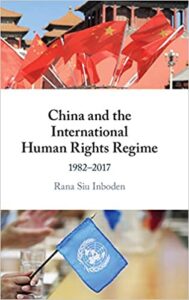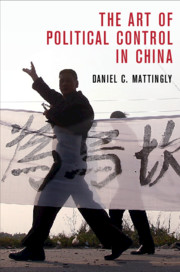 China is not content to control civil society within its own borders. Given the role of NGOs in advancing human rights globally and drawing attention to China’s human rights crimes, Beijing is working hard to shrink the space for these groups internationally, notes Rana Siu Inboden, senior fellow with the Robert Strauss Center for International Security and Law and the author of China and the International Human Rights Regime: 1982-2017. Although China’s military prowess and economic heft are changing the world in visible ways, Beijing’s ascendency is also manifested in its subversion of U.N. bodies as part of a more muscular global posture under Chinese President Xi Jinping.
China is not content to control civil society within its own borders. Given the role of NGOs in advancing human rights globally and drawing attention to China’s human rights crimes, Beijing is working hard to shrink the space for these groups internationally, notes Rana Siu Inboden, senior fellow with the Robert Strauss Center for International Security and Law and the author of China and the International Human Rights Regime: 1982-2017. Although China’s military prowess and economic heft are changing the world in visible ways, Beijing’s ascendency is also manifested in its subversion of U.N. bodies as part of a more muscular global posture under Chinese President Xi Jinping.
Other countries—especially authoritarian powers—often join Beijing in stalling NGO applications, and their actions often appear to be coordinated, she writes for Foreign Policy*:
According to my own research, the Like Minded-Group of Developing Countries, an informal coalition of an estimated 51 (mostly autocratic) regimes, is responsible for 94 percent of NGO-application deferrals. Autocratic states often protect one another by resisting civil society groups that focus on authoritarian allies. For instance, during the January 2016 review of the Iran Human Rights Documentation Center, China, Iran, and Cuba all queried the group….. These efforts are worrying evidence of authoritarian collusion to cap civil society at the United Nations.
 The case of Yidiresi Aishan, a 33 year old Uyghur activist held in a detention center in Morocco, highlights how authoritarian leaders and human rights violators are using Interpol, the world’s largest law enforcement organization, to track down critics across international borders, Coda Story’s Mariam Kiparoidze reports.
The case of Yidiresi Aishan, a 33 year old Uyghur activist held in a detention center in Morocco, highlights how authoritarian leaders and human rights violators are using Interpol, the world’s largest law enforcement organization, to track down critics across international borders, Coda Story’s Mariam Kiparoidze reports.
“Authoritarian sharp power is now one of the biggest challenges we face to the future of democracy,” according to Stanford University’s Larry Diamond.
“The changing balance of power in the world between the United States and our authoritarian adversaries … particularly between China and the United States, is the single most important and endangering change in the world from the 1990s,” he told a National Endowment for Democracy forum last week.
China’s state cultivates and co-opts local civil society groups as tools of informal control to suppress dissent and implement policies, Yale’s Daniel Mattingly, argues in The Art of Political Control in China. He challenges the conventional view that a robust civil society enhances political responsiveness, instead insisting that communities without strong civil society groups are better able to act collectively and resist the authorities.
*A full version of her essay appears in the July issue of the Journal of Democracy.







